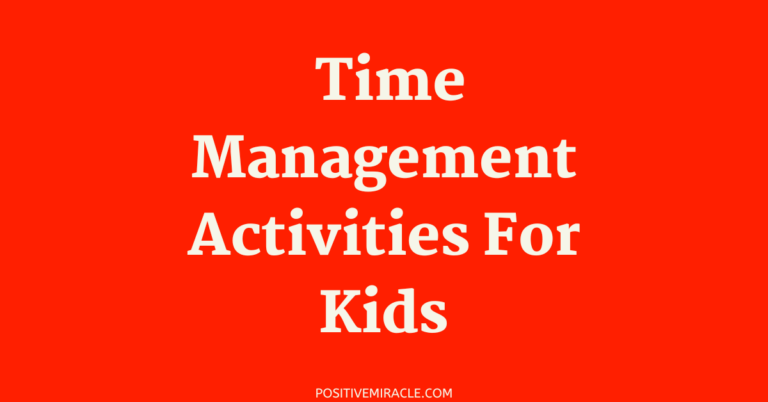Elevate Your Time Management Performance Review

Are you ready to take your performance review to the next level? It’s time to shift your focus beyond just feedback and goal-setting. Aiming for a stellar performance review involves enhancing a crucial skill that impacts your overall effectiveness: time management. Can improving your time management strategies be the key to maximizing your productivity and achieving your goals?
Key Takeaways:
- Effective time management is essential for delivering quality work and meeting deadlines.
- Your performance review presents an opportunity to enhance your time management skills.
- Identify your strengths and weaknesses in time management to create specific improvement strategies.
- Pay close attention to feedback related to time management to gain insights for improvement.
- Set SMART goals that are clear, achievable, and aligned with your performance objectives.
Identify Your Strengths and Weaknesses
One of the first steps in improving your time management is to identify your strengths and weaknesses. Evaluating your performance objectives, feedback, and ratings can provide valuable insights into how well you have planned, prioritized, and executed tasks.
Reviewing your time management practices will help you assess how often you meet deadlines, handle interruptions and changes, communicate progress, and balance your workload efficiently. By being honest and objective with yourself, you can pinpoint areas for improvement and develop specific strategies to enhance your time management skills.

Assess Your Time Management
To assess your time management performance, consider the following:
- How well do you plan your tasks and establish priorities?
- Do you consistently meet deadlines or struggle with timeliness?
- Can you effectively handle interruptions and adapt to changes?
- Do you communicate your progress and challenges transparently?
- Are you able to balance your workload and avoid becoming overwhelmed?
Evaluating these aspects will provide a comprehensive understanding of your time management strengths and weaknesses, allowing you to chart a clear path towards improvement.
Analyze Feedback Relating to Time Management
During your performance review, it is important to carefully analyze any feedback that relates to your time management skills. Pay close attention to comments and observations regarding your punctuality, meeting deadlines, productivity, and project completion. Understanding how others perceive your time management abilities is key to identifying areas for improvement and implementing effective strategies to enhance your productivity.
To effectively analyze feedback, take note of the following:
- Pay attention to comments that highlight specific time management strengths and weaknesses. This will provide valuable insights into areas where you excel and areas where you may need to improve.
- Identify any recurring feedback or patterns in the comments. If multiple individuals have commented on the same aspect of your time management, it is likely an area that needs further attention.
- Take note of any suggestions or recommendations provided by your manager or colleagues. They may offer valuable insights on specific techniques or strategies that can enhance your time management skills.
- Reflect on any observations regarding your ability to meet deadlines, handle multiple tasks, or effectively prioritize your workload. These insights can help you identify strategies to optimize your time management.
By thoroughly analyzing feedback related to your time management, you can gain a deeper understanding of your strengths and weaknesses in this area. This analysis will lay the foundation for implementing effective time management techniques and improving your overall productivity.
Example:
Let’s take a look at an example performance review excerpt:
| Feedback | Strengths | Weaknesses |
|---|---|---|
| John consistently meets project deadlines and delivers high-quality work. | Meeting deadlines | |
| John tends to get overwhelmed when there are competing priorities and struggles to effectively manage his time. | Managing competing priorities | |
| John could benefit from setting clearer goals and breaking down complex tasks into smaller, manageable steps. | Goal setting, task organization |

In this example, John’s feedback highlights his strength in meeting deadlines but also identifies weaknesses in managing competing priorities and setting clear goals. Analyzing this feedback allows John to focus on developing strategies for prioritization and goal setting, ultimately enhancing his time management skills and improving his productivity.
Set SMART Goals
Setting SMART goals is an essential step in improving your time management skills. SMART stands for Specific, Measurable, Achievable, Relevant, and Time-bound. By following the SMART framework, you can ensure that your goals are well-defined, attainable, and aligned with your overall performance objectives.
Start by identifying specific areas in which you want to improve your time management. For example, you may want to reduce the number of overdue tasks, enhance your ability to prioritize effectively, or increase your productivity during focused work sessions.
Once you have identified the areas for improvement, make sure your goals are measurable and can be objectively evaluated. This will allow you to track your progress and celebrate milestones along the way. For instance, you could set a goal to reduce overdue tasks by 20% within the next month.
Make sure your goals are achievable and realistic. Consider the resources, skills, and time available to you. It’s important to challenge yourself, but setting goals that are too ambitious may be discouraging and counterproductive.
Ensure that your goals are relevant to your performance objectives and align with your overall professional development. Ask yourself how achieving these goals will contribute to your success and the fulfillment of your responsibilities.
Lastly, set a clear timeframe for achieving your goals. By adding a deadline, you create a sense of urgency and establish a time-bound focus. For example, you could commit to completing a time management course within the next three months.
Goal Setting Tips:
- Write down your SMART goals to solidify your commitment.
- Break larger goals into smaller, actionable steps.
- Use a calendar or planner to schedule specific tasks and deadlines.
- Allocate dedicated time for focused work and minimize distractions.
- Delegate non-essential tasks whenever possible.
- Share your goals with your manager or mentor to receive guidance and support.
By setting SMART goals, you provide yourself with a roadmap for improving your time management skills. This structured approach increases your chances of success and keeps you motivated throughout the journey. Remember, effective goal setting is a powerful tool for achieving productivity and personal growth.

| Advantages of Setting SMART Goals | |
|---|---|
| Specific | Clearly define your objectives |
| Measurable | Track your progress and measure success |
| Achievable | Set realistic and attainable goals |
| Relevant | Align goals with performance objectives |
| Time-bound | Create a sense of urgency and focus |
Track and Measure Your Progress
Monitoring and measuring your progress is essential for effective time management. By using the right tools and techniques, you can gain insights into how you spend your time, track task completion, and identify areas for improvement. Here are some strategies to help you track and measure your progress:
1. Time Logs and Trackers
Keep track of how you spend your time using time logs or trackers. These tools help you identify time-consuming activities, unnecessary distractions, and areas where you can optimize your workflow. By consistently tracking your time, you can identify patterns, make adjustments, and ensure that your time is allocated efficiently.
2. Checklists and Dashboards
Utilize checklists or dashboards to track task completion and deadlines. This visual representation of your progress provides clarity on what needs to be done and helps you prioritize your tasks effectively. By checking off completed tasks and milestones, you can stay organized and motivated to accomplish your goals.
3. Feedback and Surveys
Gather input from colleagues or stakeholders through feedback or surveys. This allows you to gain different perspectives on your performance, identify areas for improvement, and gather valuable insights. By understanding how others perceive your time management, you can tailor your strategies to meet expectations and collaborate more effectively.
4. Regular Review and Reflection
Take the time to regularly review and reflect on your progress. Set aside dedicated moments to analyze your data, celebrate achievements, and identify any gaps or obstacles that may require adjustments to your goals or strategies. By taking an active role in evaluating your progress, you can continuously refine your time management skills and make meaningful improvements.
| Benefits of Tracking and Measuring Progress | Actions |
|---|---|
| Gains insights into time allocation | Consistently track time logs or use time trackers |
| Identifies areas for improvement | Regularly review feedback and reflect on milestones |
| Determines the effectiveness of time management strategies | Compare progress against set goals and objectives |
| Helps prioritize tasks and deadlines | Utilize checklists and dashboards |
Tracking and measuring your progress allows you to gain valuable insights, make informed adjustments, and continuously improve your time management skills. By being proactive in evaluating your performance, you can stay on track, meet your goals, and excel in your performance reviews.
Seek Feedback and Support
Seeking feedback and support from others is a crucial step in enhancing your time management skills and ultimately enhancing your work performance through effective time management. By opening yourself up to constructive criticism and seeking guidance, you can gain valuable insights and perspectives that will help you refine your approach to managing your time.

One way to seek feedback and support is by reaching out to your manager or mentor. They can provide you with valuable feedback on your current time management practices and offer guidance on areas where you can improve. Their experience and expertise can help you identify blind spots and provide you with actionable advice on how to enhance your time management skills.
Additionally, joining peer groups or communities of practice can be highly beneficial. These platforms allow you to connect with colleagues who are also looking to improve their time management skills. You can share best practices, tips, and strategies, and learn from others who have successfully enhanced their work performance through effective time management.
Consider seeking assistance from a coach or trainer specializing in time management. These professionals can offer expert advice, provide you with strategies tailored to your specific needs, and guide you through training programs designed to improve your time management skills. Investing in professional assistance can yield significant returns in the long run, as it equips you with the knowledge and tools needed to optimize your productivity.
Lastly, finding a buddy or partner who shares similar goals can provide you with the necessary motivation and support to stay on track. By regularly checking in with each other and holding each other accountable, you can reinforce positive habits and maintain a high level of commitment to your time management journey.
Key Takeaways:
- Seek feedback and support from your manager or mentor for personalized guidance.
- Join peer groups or communities of practice to learn from others and share best practices.
- Consider seeking assistance from a professional coach or trainer specializing in time management.
- Find a buddy or partner to provide motivation and accountability.
| Benefits of Seeking Feedback and Support | |
|---|---|
| Enhanced Work Performance | Feedback and support help you identify areas for improvement and implement effective time management strategies that directly translate into enhanced work performance. |
| Expanded Knowledge and Techniques | Seeking feedback and support exposes you to new ideas, techniques, and best practices that can expand your knowledge and improve your time management skills. |
| Motivation and Accountability | A support system of mentors, peers, or partners can provide motivation and hold you accountable, ensuring consistent application of time management practices. |
| Personal Growth | By seeking feedback and support, you actively invest in your personal development and growth, fostering a mindset of continuous improvement. |
Conclusion
Your time management skills are crucial for your performance and productivity. As you approach your performance review, seize the opportunity to enhance your time management techniques and elevate your efficiency. By investing time in assessing your strengths and weaknesses, setting SMART goals, and tracking your progress, you can take control of your time and achieve your objectives.
Effective time management starts with self-reflection. Identify areas for improvement, whether it’s better prioritization, minimizing distractions, or delegating tasks. With specific and measurable goals in place, you can stay focused, make progress, and meet deadlines. Use tools like calendars or planners to organize your tasks, and leverage your performance review to discuss strategies for improving your time management.
Don’t forget the value of feedback and support. Seek input from your manager, colleagues, and mentors to gain fresh insights and perspectives. Join communities or groups that focus on time management, and consider engaging a coach or trainer to enhance your skills further. By continuously reviewing and reflecting on your time management practices, you can adapt and refine your techniques for optimal performance.
FAQ
How can I improve my time management during a performance review?
Improving time management during a performance review begins with identifying your strengths and weaknesses in planning, prioritizing, and executing tasks. It also involves taking note of any feedback relating to your time management skills and setting SMART goals that are specific, measurable, achievable, relevant, and time-bound.
Why is it important to assess feedback relating to time management in a performance review?
Assessing feedback on time management in a performance review helps you understand how others perceive your skills. This insight allows you to identify areas for improvement and implement strategies to enhance your productivity.
What are SMART goals and how do they relate to time management?
SMART goals are goals that are specific, measurable, achievable, relevant, and time-bound. Setting SMART goals helps you improve your time management by providing clear objectives that align with your overall performance goals.
How can I track and measure my progress in time management?
You can track and measure your progress in time management by using tools such as time logs, checklists, and feedback surveys. Regularly reviewing your data and making necessary adjustments allows for continuous improvement.
Why is seeking feedback and support important for improving time management?
Seeking feedback and support from others, such as managers, mentors, or coaches, can provide valuable insights and guidance for enhancing your time management skills. Joining peer groups or communities of practice and finding a buddy or partner who can keep you accountable are also beneficial.






